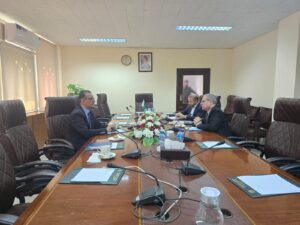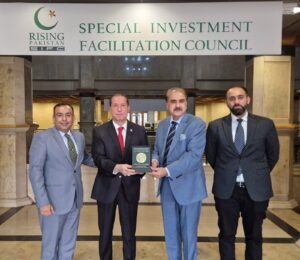It is time businesses moved beyond the small talk on sustainable development

Sure, so much has been said about sustainability and ESG - but make sure your audiences are listening in. Image Credit: Shutterstock
Many companies have mastered playing the SDG bingo — where you hang your hat on as many Sustainable Development Goals (SDGs) as possible just to look good. Having weak links to the SDGs or any other ESG metrics will make you lose credibility.
The ESG (Environmental, Social, Governance) should be a natural nexus within companies and an integral part of corporate strategy. Those attempting to merely associate with ESG will eventually be called out for greenwashing. Therefore, SDG misreporting and misleading ESG claims are not only bad for communities and the environment, they are bad for business too.
Undoubtedly, CSR must be communicated well, but action should prevail over aspirational talk. Aspirational talk doesn’t impede CSR. Research has shown that CSR is partially shaped by talk and communication, and that talking is considered an action in its own right.
Aspirational talk is key to social change on many different levels, not least the environmental front – but we must live up to our aspirations. Prioritizing talk over action often leads to customer disengagement and even cynicism from employees.
Talk backed by action, also known as ‘twalking’, is an opportunity to build brand equity. Many brands are loved for what they offer in terms of products, services and experiences, and there is a huge potential for increased brand equity through educating the consumer about the importance of CSR.
Consumer concern about sustainability challenges is limited in the MENA region. There is indeed a certain level of consumer awareness about CSR challenges, and consumers do care when they see companies tackling these challenges, especially in times of crisis. But this awareness level may still be limited compared to other parts of the world.
An indifference to CSR
The CSR challenge in MENA is multifaceted. Part of it is the limited awareness about the importance of CSR among consumers; part of it is the minimal action by companies as opposed to words; and part of it is the lack of trust among consumers towards brands and their claims.
The role of communications professionals and corporate offices is to educate and build trust, genuinely and consistently. To build trust, we must change the meaning of ‘showcasing our CSR efforts’.
In this context, ‘showcasing’ should mean doing more than talking, and actively involving customers, partners and the broader community. Only talking about what we’re doing means a job half done.
The greatest approach to sustainability is creating and running a business rooted in purpose. There is a huge potential in the profit-with-purpose model, especially for start-ups and given the SME sector encompasses 90 per cent of total businesses in MENA.
No time-lines to this effort
Whether you are a small business or a large enterprise, a sound environmental strategy is not a plan for a year, two or even five years. It is a life-long commitment. The ‘next quarter’ in ESG reporting should mean the next 25 years, rather than the next three months.
There’s no doubt that authenticity is also about leadership. When reading sustainability reports, I wish reports get shorter and focus on the real action and impact of so-called ESG strategies. I also wonder whether leadership is really involved and hands-on, and whether the ESG strategies are part and parcel of those businesses, as opposed to merely being a compliance exercise.
ESG communications represents one of the battles in the war on climate change. To win this battle, we must do more and act now. If we don’t step up, we’re heading towards a post-apocalyptic world.
We can’t deny the critical role of government and the business community, but as communicators, ESG practitioners, media and corporate professionals, we can also play our part by advocating for authentic ESG efforts backed by a realistic narrative.


